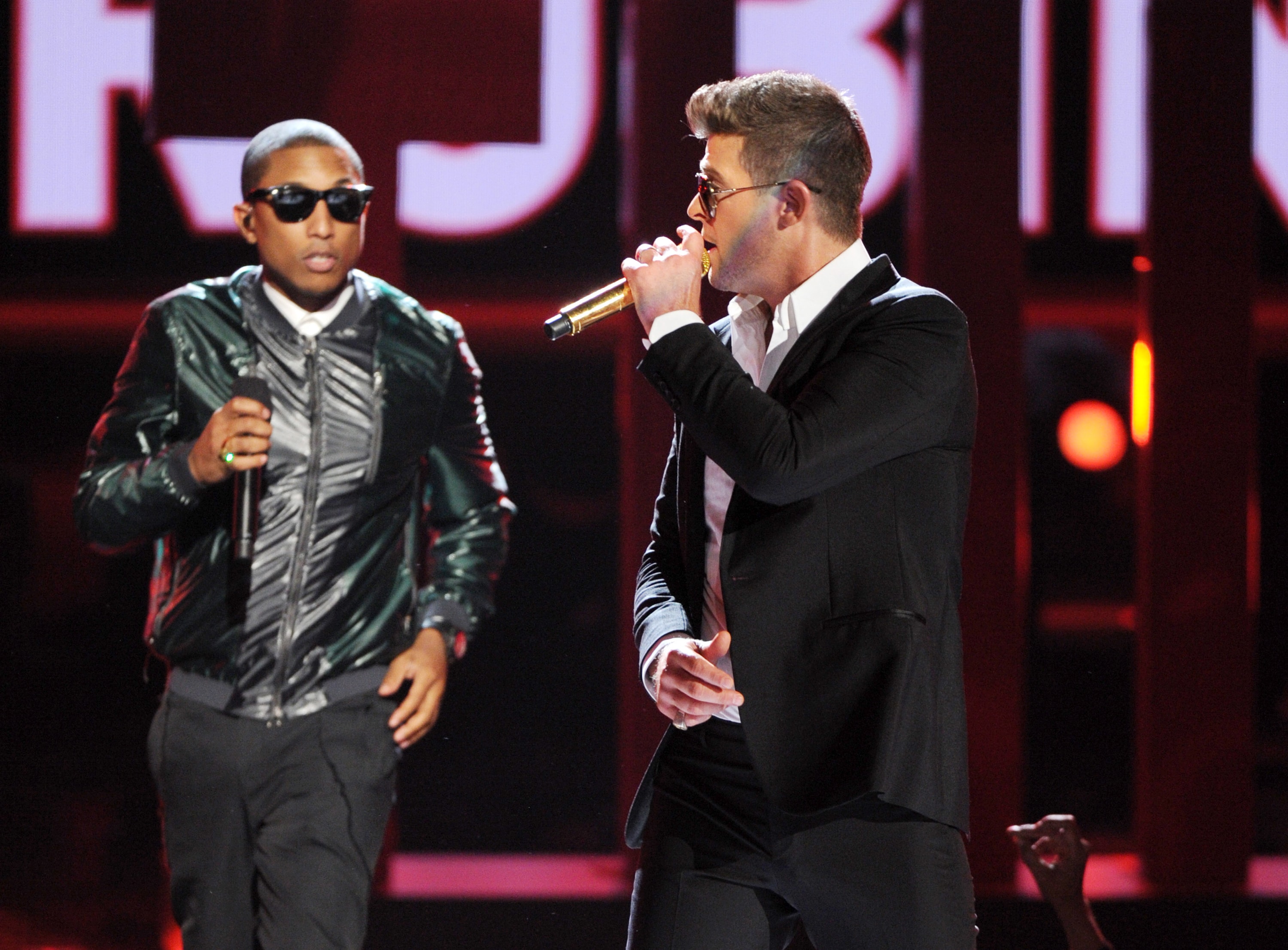Copyright advocates maintain that the laws are an essential tool for stimulating creativity and the production of new songs. The "Blurred Lines" ruling proves exactly the opposite.
This is a translation of a statement originally published on derechosdigitales.org on 19 March 2015.
A jury has declared that the song “Blurred Lines” infringed on the rights of Marvin Gaye, writer of “Got To Give It Up,” even though the songs have distinct lyrics and chords, and they’re in different keys and tempos. The decision implies that the way humans have always created art is actually illegal.
“There’s only three things that’s for sure/ Taxes, death and trouble,” sings Marvin Gaye in “Trouble Man“. In 1983, the “Prince of Soul” returned to the U.S. after tax exile in Belgium and embarked upon a national tour, promoting what would be his last great hit: “Sexual Healing“. He started using cocaine again, and his erratic, paranoid and suicidal behaviour came back. On April 1, 1984, Gaye was killed, by two shots fired by his father. He was 44 years old.
The premature death of one of the most iconic voices of soul (and of music in general) is certainly a tragedy. But the fact that Gaye will never compose or sing a new song again has not stopped him from being profitable; or at least not as much as one would have expected. Last week, a U.S. jury awarded more than US$7 million to his heirs as compensation for infringement of copyright “Got To Give It Up,” by Pharrell and Robin Thicke in their hit, “Blurred Lines“.
Nona Gaye, daughter of the singer and songwriter, categorized the verdict as “a miracle,” her surprise shared by copyright specialists all over the world: although the songs are similar, they have different chord progressions, they are in different keys and they have different lyrics. “I was trying to channel that late 70’s feeling,” explained Pharrell, a feeling that obviously owes much to the life and work of Marvin Gaye. But feelings are not subject to copyright protection.
How is it possible that Gaye’s heirs won the case? Some suggest that the jury was misled with poor instructions; others say that Thicke was unable to show himself to be empathetic. Richard Busch, the lawyer who represented Gaye’s heirs validated (more or less) both theories. What is clear is that this is an excellent example of how out-of-control U.S. copyright laws are.
Copyright advocates maintain that the laws are an essential tool for stimulating creativity and the production of new songs. The “Blurred Lines” ruling proves exactly the opposite. “We did it because (Marvin) can’t,” explained Nona, and she is right: Marvin Gaye has been dead for 30 years and is incapable of filing a lawsuit or singing, much less, writing songs. All the money in the world can’t change those realities.
However, following this judgement, it is quite possible that many songs will never get released for fear that the smallest resemblance to other songs will trigger a lawsuit for millions of dollars. As a result, the number of songs available decreases, and not the other way around.
But even more serious is the fact that this ruling impinges on the way in which humanity has produced culture since the beginning. Art – be it musical, visual, literary, scientific, or any other sort – is not made by magical entities finding inspiration in a vacuum, but by men and women who are capable of coming up with something new using what surrounds them and came before them.
To cite Pierre Bourdieu, “those collective resources, collectively accumulated, constitute limitations and possibilities at the same time:” That which is possible is created in a given moment in time, from the wealth of knowledge already acquired in a given field. “Blurred Lines” is possible thanks to “Got To Give It Up,” in the same way that Gaye’s song is possible thanks to the work of Ray Charles, Stevie Wonder, Otis Redding, Smokey Robinson, Sam Cooke, Little Richards, and Bo Diddley. It is also possible thanks to the great jazz, blues, and ragtime musicians, and so on, all the way back to the first community who used their fingers to tap a beat.
It’s clear that “Blurred Lines” owes much to “Got To Give It Up”. You can say this as an insult if you’d like; worse things have been said about the song, but should it be considered an example of copyright violation? Under no circumstance. Not only because neither a “groove“, nor a feeling, nor ideas cannot be licensed, but because doing so does not make sense. What right are people trying to protect with this ruling? How does it stimulate creative production? Copyrights are monopolies of exploitation, and it would be difficult to argue that Marvin Gaye has exclusive rights to feelings that a certain late 70’s Afro-American reference to masculinity can produce, whether vague or not.
From the perspective of Latin America, we must view this ruling with suspicion as the United States is the leading proponent of copyright standards that are increasingly prohibitive. These are exported to other parts of the world through aggressive politics and international treatises such as the TPP, however, without any mention of their system of exceptions. This system is much better than that of our countries, but it is not foolproof when it comes to solving problems such as those presented in this legal case.
The “Blurred Lines” ruling demonstrates this: copyright in the United States has lost its focus and has gotten out of control. Is it too late to change directions?



